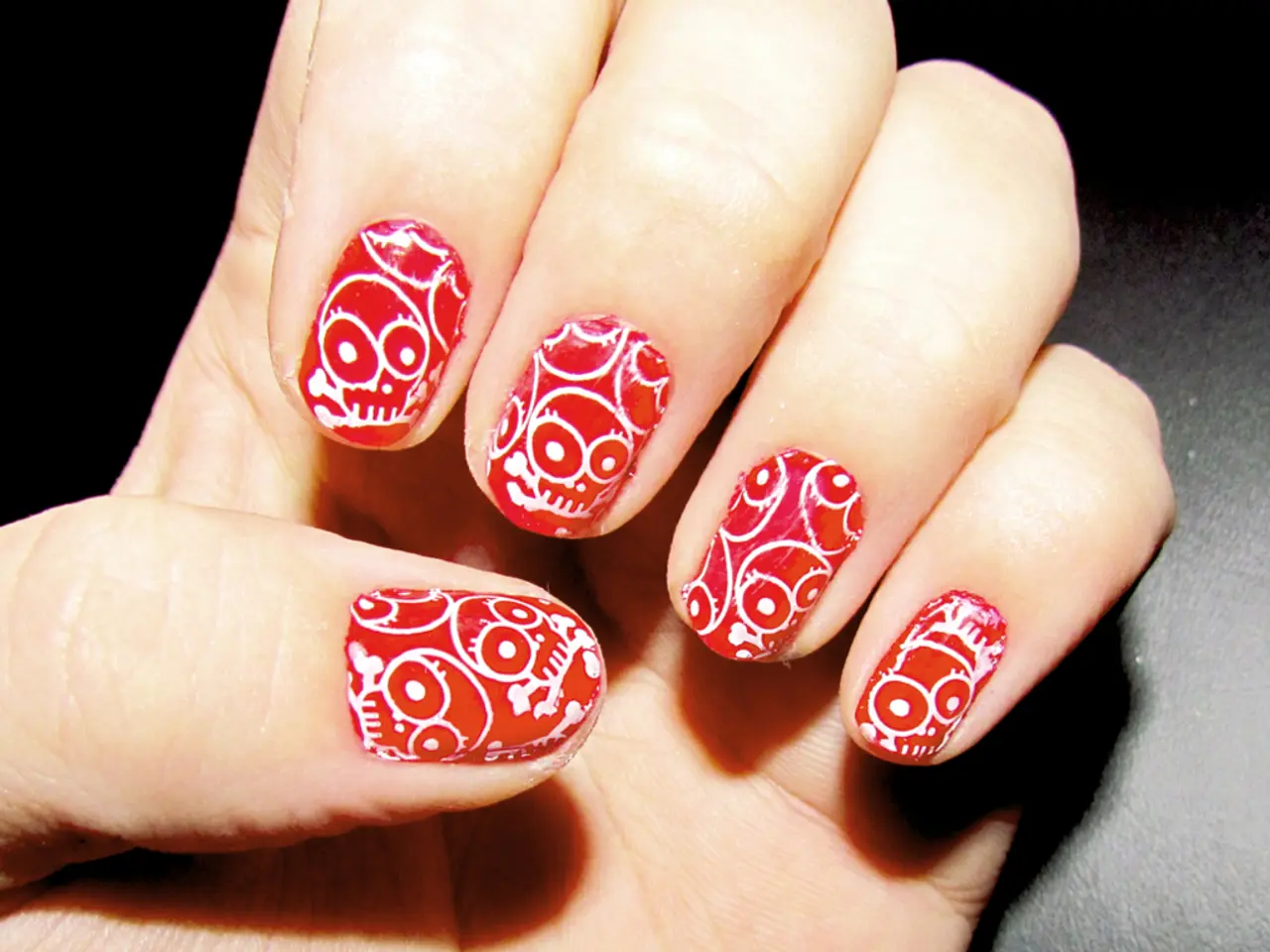Guide on Curbing Finger Nail Nibbling
In the realm of common habits, chronic nail biting, or Onychophagia, can pose a significant challenge for many individuals. This article presents a multifaceted approach to managing this condition, drawing on the expertise of Dr. Sandra Darling, a preventive medicine physician and wellness expert.
Onychophagia can sometimes be exacerbated by a simple hangnail or nail imperfection, leading to a vicious cycle of excessive grooming. However, seeking help is crucial. Talking to a support buddy during moments of urge can help manage stress, while discussing your concerns with a mental health provider may be necessary if nail biting causes psychological distress, affects social life, professional life, or job performance.
Chronic nail biting often serves as a coping mechanism, providing a sense of calm. Recovery from this habit requires repeated effort and self-care. A practical and commonly used approach includes applying bitter-tasting nail coatings such as Mavala Stop, which discourages nail biting by making the nails taste unpleasant, helping break the habit over time.
Behavioral therapies, such as habit reversal training, are also effective and focus on becoming aware of nail-biting triggers and replacing the behavior with healthier alternatives. Dermatological care may be needed if nail damage or infections occur, and certain pharmacological treatments can be considered in severe cases. Supportive care involves maintaining nail hygiene and regular manicures to reduce the temptation to bite.
The TLC Foundation for Body-Focused Repetitive Behaviors offers a directory of support groups and educational events for those struggling with Onychophagia. Dr. Darling usually recommends a combination treatment approach that includes behavioral therapy, self-care, and relaxation techniques such as meditation, journaling, and yoga.
It's essential to remember that telling someone to stop nail biting and reprimanding them does not help, as it reinforces their feelings of being flawed. Instead, offering understanding, support, and practical solutions can make a significant difference.
Approximately 20% to 30% (or more) of Americans struggle with chronic nail biting, a behavior that healthcare providers classify as a type of obsessive-compulsive disorder or body-focused repetitive behavior (BFRB). By understanding the nature of Onychophagia and adopting a comprehensive, compassionate approach, many can find relief and regain control over their nails.
Read also:
- Trump's SNAP reductions and New York City Council's grocery delivery legislation: Problems for city residents highlighted
- Forty-year-old diet: A list of meal choices to savor
- Exiled Life's Conundrum: A Blend of Liberation, Disillusionment, and Distress
- Establishing a support network for family caregivers nationwide in the United States





